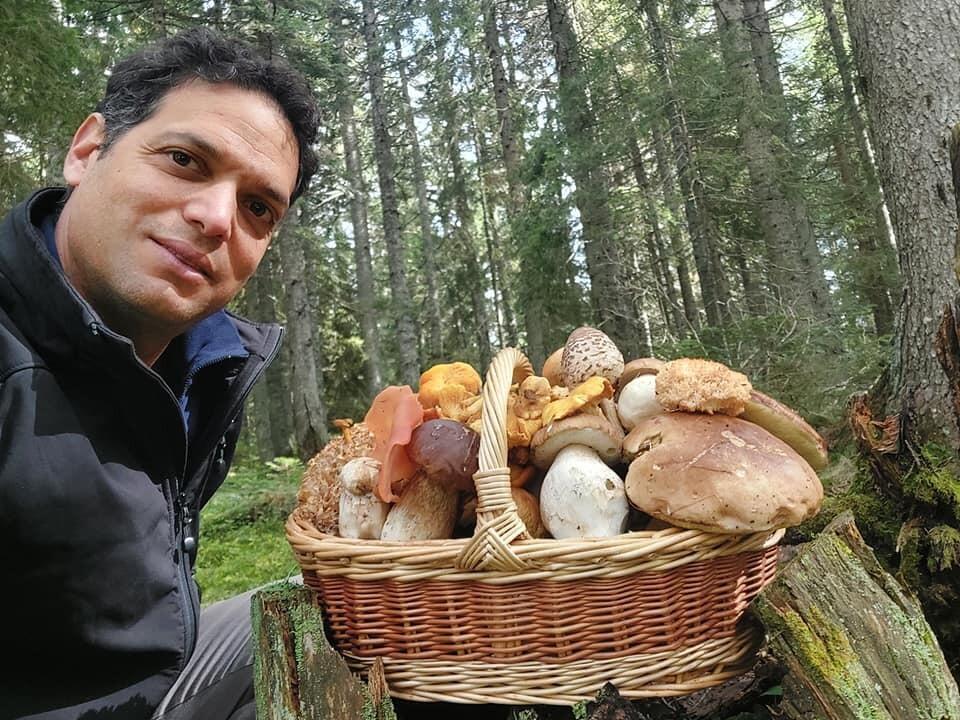Getting your Trinity Audio player ready...
Once confined to Asian kitchens and traditional medicine, medicinal mushrooms are now emerging from the shadows of supermarket aisles and alternative‑health clinics to take center stage in modern wellness routines, experts say.
Ashad Haklai, a pharmaceutics engineer and naturopath based in Israel, says scientific research has validated what ancient cultures long believed: certain fungi contain active compounds that can bolster immunity, support organ function and even aid in cancer care.
“Medicinal mushrooms are simply varieties that have undergone rigorous study and proven effective at improving health,” Haklai said. “Today we know which compounds they contain, how they affect the body and there is firm evidence that they work. This isn’t fiction or ‘grandma’s remedy.’”
Archaeological finds suggest the practice dates back millennia. A 5,300‑year‑old mummy discovered in the Alps was buried with a healing mushroom and Chinese records indicate royalty used tremella—known as the “beauty mushroom”—as early as 3,000 years ago, Haklai said.
In recent years, however, these fungi have leapt into the mainstream. No longer a mysterious curiosity for alternative practitioners, they have become staples among biohackers and wellness advocates in Europe, North America and Israel, where specialty farms are now cultivating unique strains.
“People are returning to natural ingredients even as scientists can study them in depth,” Haklai said. “It’s become a big deal.”
Researchers credit medicinal mushrooms primarily with immune support, helping to regulate overactive responses in allergy and autoimmune conditions or boosting defenses against infections and inflammation. Their multitargeted effects have also drawn interest in oncology: compounds such as PSK (Polysaccharide Krestin) from turkey‑tail mushrooms are approved anticancer agents in Japan.
Haklai highlighted several leading strains:
- Cordyceps: Two main varieties—Cordyceps militaris, cultivated locally and associated with increased energy and libido and Cordyceps sinensis, more extensively studied for complementary cancer therapies. Studies show both can enhance aerobic performance and delay fatigue.
- Lion’s mane (Hericium erinaceus): Contains compounds that may improve memory and support nerve‑cell health, making it of interest for neurological conditions.
- Reishi (Ganoderma lucidum): The most studied medicinal mushroom, often used for allergy relief and liver support.
- Agaricus: Related to the common button mushroom, it helps maintain mucosal tissue health in the lungs and skin.
- Shiitake: Known to improve blood‑lipid profiles and cholesterol and to support antiviral immunity through the polysaccharide lentinan. Anecdotal reports trace its use to 1960s Korea, where soldiers recovered from a severe viral outbreak after local recommendations to consume shiitake.
- Turkey tail (Trametes): Source of PSK, a registered cancer therapy in Japan.
For casual “superfood” use, Haklai recommends adding fresh or dried mushrooms to soups and stews. “They’re low in calories, relatively high in protein and one of the few non‑animal sources of vitamin D,” he said.
However, therapeutic applications demand standardized extracts. Haklai advises patients to choose products with clear lab analyses detailing active‑compound concentrations, extraction methods (water or alcohol) and whether they include the fruiting body, the subterranean mycelium or both. He warns against powders containing grain substrate—often sold simply as “mushroom”—which dilute the desired fungal material.
Get the Ynetnews app on your smartphone: Google Play: https://bit.ly/4eJ37pE | Apple App Store: https://bit.ly/3ZL7iNv
Liquid tinctures and extracts can be convenient but may not fully capture all active substances and concentrations tend to be lower than in dry extracts or capsules. “For clinical effects, precise dosing and high‑concentration extracts are essential,” Haklai said.
He noted that medicinal mushrooms are generally very safe for individuals without mushroom sensitivities, with minimal known side effects or drug interactions. The greatest pitfall, he said, is investing in low‑quality products or selecting the wrong mushroom for one’s needs, leading to disappointment and missed benefits.
“Ultimately, there is no significant danger,” he said. “The key is to choose the right product tailored to your health goals.”



